Traditional Māori music, or pūoro Māori, is composed or performed by Māori, the indigenous people of New Zealand, and includes a wide variety of folk music styles, often integrated with poetry and dance.
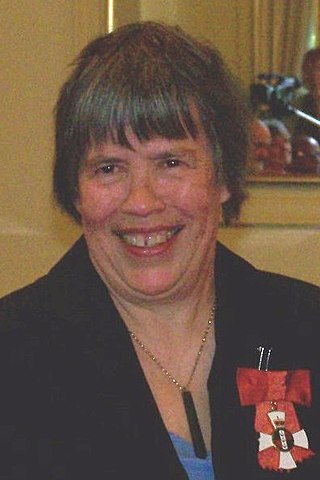
Dame Gillian Karawe Whitehead is a New Zealand composer. She is of Māori Ngāi Te Rangi descent. Her Māori heritage has been an important influence on her composing.
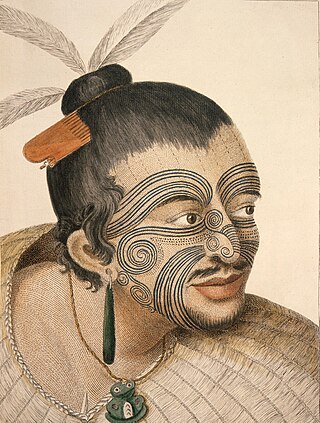
Tā moko is the permanent marking or tattooing as customarily practised by Māori, the indigenous people of New Zealand. It is one of the five main Polynesian tattoo styles.

Barbara Whirimako Black is a New Zealand Māori recording artist and actress.
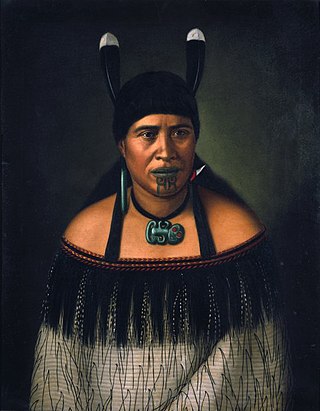
New Zealand art consists of the visual and plastic arts originating from New Zealand and comes from different traditions: indigenous Māori art and that brought here including from early European mostly British settlers.
Hirini (Sid) Melbourne was a Māori composer, singer, university lecturer, poet and author who was notable for his contribution to the development of Māori music and the revival of Māori culture. He played traditional instruments and his waiata (songs) have preserved traditions and used Māori proverbs. He received the New Zealand Order of Merit in recognition of his services to Māori music. He was from Ngāi Tūhoe and Ngāti Kahungunu Māori tribes.

Taonga pūoro are the traditional musical instruments of the Māori people of New Zealand.
Atamira Dance Company is a Māori contemporary dance company in Aotearoa based at the Corban Estate Arts Centre in Auckland.
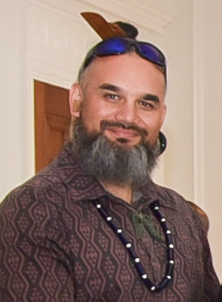
Horomona Horo is a New Zealand Māori musician and composer. He is a practitioner of taonga pūoro, the collective term for the traditional musical instruments of the Māori, which include an array of flutes, trumpets and percussive instruments.

Ngahuia Te Awekotuku is a New Zealand academic specialising in Māori cultural issues and a lesbian activist. In 1972, she was famously denied a visa to visit the United States on the basis of her sexuality.
Rangi Kipa is a New Zealand sculptor, carver, illustrator and tā moko artist.
Areta Rachael Wilkinson is a New Zealand jeweller.
Oriini Kaipara is a New Zealand broadcaster, journalist and translator and interpreter of Māori and English. Kaipara has worked for Mai FM, TVNZ 1, Māori Television, and Three.
Mere Tokorahi Boynton is a New Zealand singer, producer and actor. As an actor she is known for her role as Mavis in the film Once Were Warriors. Boynton was Director Ngā Toi Māori for the Aotearoa Festival.
Louise Mary Potiki Bryant is a New Zealand choreographer, dancer and video artist. She has choreographed a number of award-winning performances, and is a founding member of Atamira Dance Company. She designs, produces and edits videos of performances for music videos, dance films and video art installations. She was made an Arts Foundation of New Zealand Laureate in 2019.
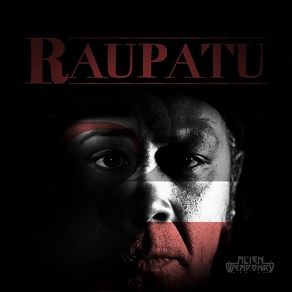
"Raupatu" is a Māori language song by New Zealand thrash metal band Alien Weaponry. Released as a single in early 2017, it won the Maioha Award at the 2017 APRA Silver Scroll Awards.
Ross Calman is a New Zealand writer, editor, historian, and translator of the Māori language.
Christine Harvey is a New Zealand tā moko artist and teacher.
Ruby Mae Hinepunui Solly is a New Zealand poet, taonga pūoro practitioner, cellist, composer, music therapist and scriptwriter.
Martin Victor Lodge was a New Zealand composer and Emeritus Professor of Music at the University of Waikato.








